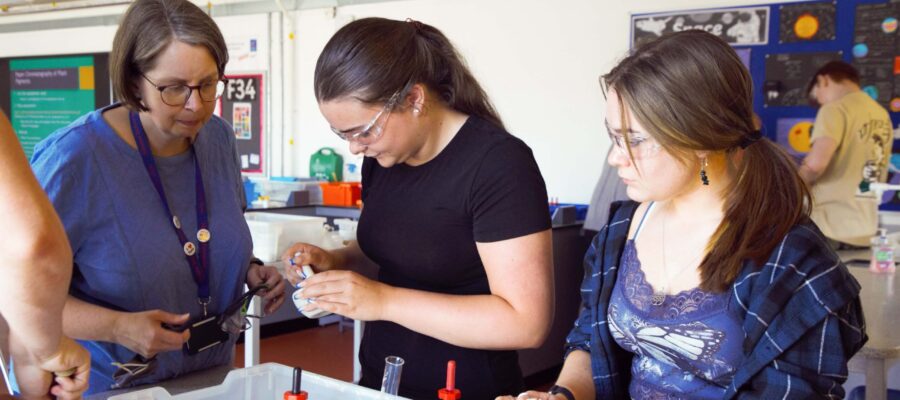
What will I study?
A Level Chemistry gives students the opportunity to study key concepts in greater depth. Many of the ideas first covered at GCSE will be revisited but with a greater emphasis on explaining rather than simply describing the behaviour of molecules. While studying A Level Chemistry students will develop practical skills which include making observations, collecting data, analysing experimental results and formulating conclusions.
Students will study the following:
• Physical Chemistry topics include: Atomic structure, Bonding, Kinetics, Chemical equilibrium, Redox reactions, Rates of reactions, Electrochemical cells and Acids and Bases.
• Inorganic Chemistry topics include: Periodicity, Group 2 elements, Group 7 elements, Properties of Group 3 elements, Transition elements and Reactions of ions.
• Organic Chemistry topics include: Alkanes, Halogenoalkanes, Alkenes, Alcohols, Aldehydes, Ketones, Carboxylic acids, Amines and Chromatography.
There are three examinations:
Paper 1 – Elements of Physical Chemistry and Inorganic Chemistry
Paper 2 – Elements of Physics Chemistry and Organic Chemistry
Paper 3 – Practical Skills and Endorsement – Students achieve a pass or fail. This is independent of their final grade but is recorded on their exam certificate.
Where will it lead?
Over 500 degree courses contain a notable element of Chemistry allowing breadth of study.
Links with other courses
Mathematics, Physics, Biology, Geography, Government & Politics, Computer Science and Sports Science.

